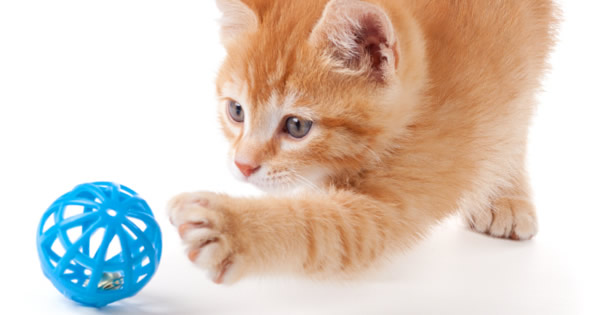When you bring your new kitten to the veterinarian for an initial checkup, she will be examined thoroughly from nose to tail. Once the veterinarian confirms that she is in good health, he will discuss a kitten vaccination schedule. The shots for kittens are administered so that your kitten can build up antibodies in her immune system to protect her against several viral diseases.

Shots for Kittens
The core kitten vaccinations include a series of the FVRCP vaccine and a rabies vaccine. What shots do kittens need :
The FVRCP Vaccine
FVRCP stands for feline viral rhinotracheitis, calici virus and panleukopenia. The vaccine is commonly referred to as a three-in-one vaccine, and it protects against three viral infections that can afflict cats.
Rhinotracheitis, also known as herpes, and calici virus are both viruses that present with upper respiratory symptoms, including sneezing, nasal congestion and nasal discharge. Some cats also develop oral ulcerations from these viruses, and cats with herpes often experience swollen, inflamed eyes and ocular discharge. Due to frequent mutation and numerous strains of rhinotracheitis and calici virus, the vaccine cannot offer complete immunity from contracting the illnesses. Vaccination will protect your cat against some strains, and it will lessen the severity of others.
Panleukopenia, also known as feline distemper, is much more serious. This highly contagious and often fatal virus attacks the gastrointestinal tract, resulting in severe vomiting and diarrhea.
The American Association of Feline Practitioners recommends that kittens should begin a series of inoculations at six weeks of age, with boosters given every four weeks until 16 weeks of age. By this time, most of the kitten’s maternal immunity has dissipated. The complete series of kitten vaccinations will enable her to develop her own protective level of immunity. Another booster is given one year later, and then the FVRCP vaccine is given every three years through adulthood.
The Rabies Vaccine
Rabies is always fatal, and it is transmitted to humans through sustained bite wounds from an infected animal. Therefore, vaccinating cats and dogs against the disease is required by law in many states. If your cat bites someone, you must be able to furnish authorities with proof that your cat is current on her rabies vaccination.
Bats are the most common vectors of rabies. Since bats are able to squeeze into narrow crevices, they may take up residence in your attic. They can also enter your home through a chimney or an unscreened window that had been cracked open. Such scenarios place indoor cats at risk for contracting rabies.
When your kitten receives her final FVRCP vaccine in the series, she will also receive her rabies vaccine. One year later, she will receive a booster for the rabies vaccine. Depending on which type of vaccine your veterinarian uses, further injections of the rabies vaccine will be administered either annually or once every three years.
The Feline Leukemia Vaccine
Not every kitten needs to be vaccinated against the feline leukemia virus, a disease that compromises a cat’s immune system. Your kitten’s lifestyle will determine whether or not she needs the protection. Feline leukemia is contracted through long-term direct contact with saliva, urine and other bodily fluids from an infected cat. If you have made the wise decision to keep your cat safely indoors at all times, and if there are no infected cats already in your home, then vaccination against feline leukemia is unnecessary. If you plan to allow your cat outdoors or to own another cat that is positive for the virus, then a series of two boosters given three to four weeks apart will be administered to your kitten as long as her feline leukemia blood test is negative. Another booster is administered one year later, and then it is given every three heads thereafter.
Addressing the Risks of Shots for Kittens
From mild to severe allergic reactions to kidney inflammation to injection site sarcomas, a growing number of concerns surrounding vaccination have surfaced over the years. No vaccine is without risk, and the key to making the best decision for your cat is to weigh the benefits and the risks.
Steps have been taken over the past decade to decrease some of the risks. At the recommendation of the American Veterinary Medical Association, vaccines are now administered in the limbs instead of the scruff, making complete tumor removal more successful if a sarcoma develops. Non-adjuvant, or modified live, vaccines have been developed, which are safer than the adjuvant vaccines. Adjuvant vaccines are killed viruses with additives that can cause some of the adverse effects. Finally, vaccines that were once administered to all cats on an annual basis are now being given every three years, and vaccination protocols and a kitten vaccination schedule are being tailored to suit each patient’s lifestyle.
Kitten Vaccination Schedule
Do not be afraid to pose questions and voice concerns to your veterinarian. Throughout your feline friend’s life, your veterinarian will take into account such factors as her age, health status, lifestyle, level of risk and new research findings when making his recommendations for a vaccination protocol and a kitten vaccination schedule that will keep her protected and healthy. Find out more about our pet insurance plans with optional preventive coverage to be able to help to cover the costs of shots for kittens. PetPremium helps to keep your feline happy, healthy and protected.